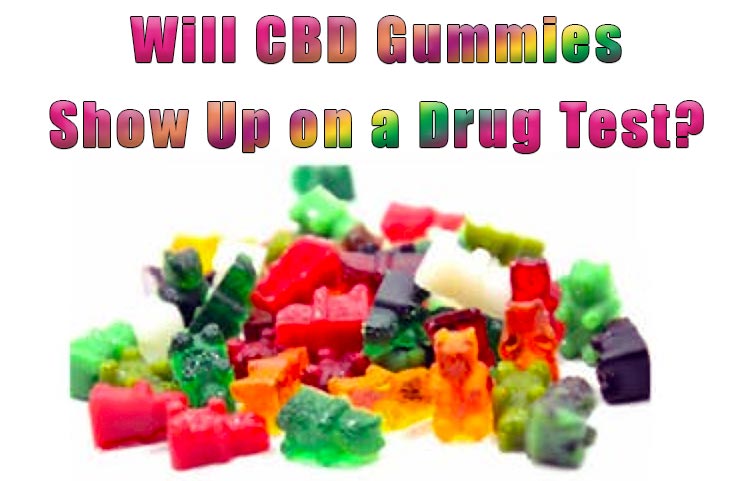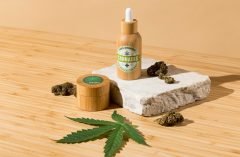Table of Contents
What do you know about CBD Gummies ? I mean you’ve heard all the buzz about CBD recently, and it has piqued your interest. Whether you suffer from chronic pain, inflammation, generalized anxiety disorder, or something else, you’re curious about CBD because it’s a more natural alternative to pharmaceutical drugs and won’t get you high the way smoking marijuana will.
However, there is still a question holding you up before you try it: will it show up on a drug test? CBD (short for cannabidiol) sounds appealing, especially those delicious gummies you see online, but it won’t be worth it if it gets you in trouble with your employer, who makes you undergo regular yet unpredictable drug tests.
The answer is: it depends, though it’s unlikely. Because CBD does not get you high and thus does not impair your mental state, most tests don’t screen for it. There are all sorts of different gummies, though, so the kind you eat could affect things.

Different kinds of gummies
CBD products in the United States must be derived from hemp, not marijuana. Both are kinds of cannabis, but hemp has low THC content—the molecule, or cannabinoid, that gets you high. THC is what drug tests are most often vigilant for. CBD gummies in the US cannot contain more than .3 percent THC, which may not appear on a drug test even if it’s still present in your system (and is definitely not enough to make you feel “stoned”).
Why would THC be in gummies, though? Research suggests that CBD works best in tandem with a little bit of THC. CBD products with THC are known as “full-spectrum,” and will also contain other beneficial compounds found in cannabis like terpenes and flavonoids (though these are not intoxicants either).
If you are worried about THC showing up on a drug test and would rather play it safe, despite sacrificing a few benefits, you can also buy “broad-spectrum” products. These also contain other terpenes and cannabinoids, but the THC is removed. Likewise, you will see CBD gummies that contain “CBD isolate,” such as those from Verma Farms, that contain only CBD and nothing else from the cannabis plant (though some other products may include additional ingredients, such as melatonin to aid sleep).
Your other habits may play a role
The Substance Abuse and Mental Health Services Administration notes that the suggested cutoff level to pass a drug test is 50 nanograms per milliliter of urine. If you are intaking extremely high amounts of CBD, especially from full-spectrum products—such as more than 2,000 mg per day, which is such a high concentration that most gummies aren’t even made with it and should only be eaten if your doctor instructs you to—it is unlikely, though still possible, to trigger a false positive on a drug test.
Something else you should be aware of is that CBD affects how long THC stays in your system. If you know ahead of time when your next drug test at work will be, you might schedule your own marijuana enjoyment around these dates so that the THC is undetectable by the time the test comes around. This time period is usually three to 15 days. However, CBD can influence your body’s metabolism of other compounds, so using CBD while also smoking marijuana might make the THC linger in your system for longer.
Be wary of the industry
If you buy from a reputable company, then you have much less to worry about. Unfortunately, the CBD industry is largely unregulated because each state enforces its own laws regarding the substance, and the FDA has only approved one brand of CBD product, Epidiolex (though the FDA is not particularly militant about watching CBD; individual states have been more so). Because there are so few genuine industry standards, companies are often left to hold themselves accountable—which many do not do.
Be cautious of companies trying to cut corners. Mislabeling products is a serious issue in the CBD industry; the gummies you purchase might have more or less CBD in them than advertised—even THC. Signs of a reputable company include transparency about where its hemp comes from, clear and available knowledge about the science behind cannabidiol, and easily accessible Certificates of Analysis. The latter are published lab results from third-party laboratories that companies are supposed to send their products to for purity and potency testing. Once you learn how to read them, you’ll be able to tell if the THC content is sufficiently low enough to avoid testing positive on a drug test.
CBD gummies are a delicious way to reap the incredible benefits of CBD, and it’s doubtful that you will fail a drug test because of them. Nevertheless, you need to be vigilant and careful about where you shop from and monitor your marijuana usage.





